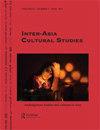Urban stratification: Hsinchu city as an inclusive archive
IF 0.4
4区 社会学
Q4 ANTHROPOLOGY
引用次数: 0
Abstract
ABSTRACT The establishment of the Hsinchu Science-based Industrial Park (HSIP) in 1980 created a site for high-tech success in Taiwan and increased the political, cultural and economic significance of the city of Hsinchu. In the intervening four decades, Hsinchu City has moved between the identities of being an historic city and a science city. While most research on HSIP focuses on its economic benefits, the resulting social and economic segregation between the natives of Hsinchu and newcomers to the city has evolved. Although current city development often causes the alienation of old timers and indifference by newcomers, the center of Hsinchu remains the locus in which to transform the dichotic city into a place to be enjoyed by everyday residents. This paper uses an ethnographic approach to examine the value of historic sites interpreted by both groups. The discussion focuses on how opinions held by preservationists/officials/elites (re)shape the value of historic environments yet create conflicts among stakeholders with different interests, and how narratives of “city as archive” (re)shape the connections between people, place, and the past.城市分层:新竹市的包容性档案
1980年,新竹科学工业园(HSIP)的建立为台湾的高科技成功创造了一个场所,并增加了新竹市的政治、文化和经济意义。在这四十年里,新竹市在历史城市和科学城市的身份之间转换。虽然大多数关于HSIP的研究都集中在其经济效益上,但由此产生的新竹本地人和新来的人之间的社会和经济隔离已经演变。尽管目前的城市发展往往会造成旧时代的疏离和新时代的冷漠,但新竹市中心仍然是将二元对立的城市转变为普通居民享受的地方的所在地。本文采用人种学的方法来考察这两个群体所解读的历史遗址的价值。讨论的重点是保护主义者/官员/精英们的观点如何(重新)塑造历史环境的价值,但却在具有不同利益的利益相关者之间制造冲突,以及“作为档案的城市”的叙事如何(再次)塑造人、地和过去之间的联系。
本文章由计算机程序翻译,如有差异,请以英文原文为准。
求助全文
约1分钟内获得全文
求助全文
来源期刊

Inter-Asia Cultural Studies
Multiple-
CiteScore
0.90
自引率
20.00%
发文量
22
期刊介绍:
The cultural question is among the most important yet difficult subjects facing inter-Asia today. Throughout the 20th century, worldwide competition over capital, colonial history, and the Cold War has jeopardized interactions among cultures. Globalization of technology, regionalization of economy and the end of the Cold War have opened up a unique opportunity for cultural exchanges to take place. In response to global cultural changes, cultural studies has emerged internationally as an energetic field of scholarship. Inter-Asia Cultural Studies gives a long overdue voice, throughout the global intellectual community, to those concerned with inter-Asia processes.
 求助内容:
求助内容: 应助结果提醒方式:
应助结果提醒方式:


